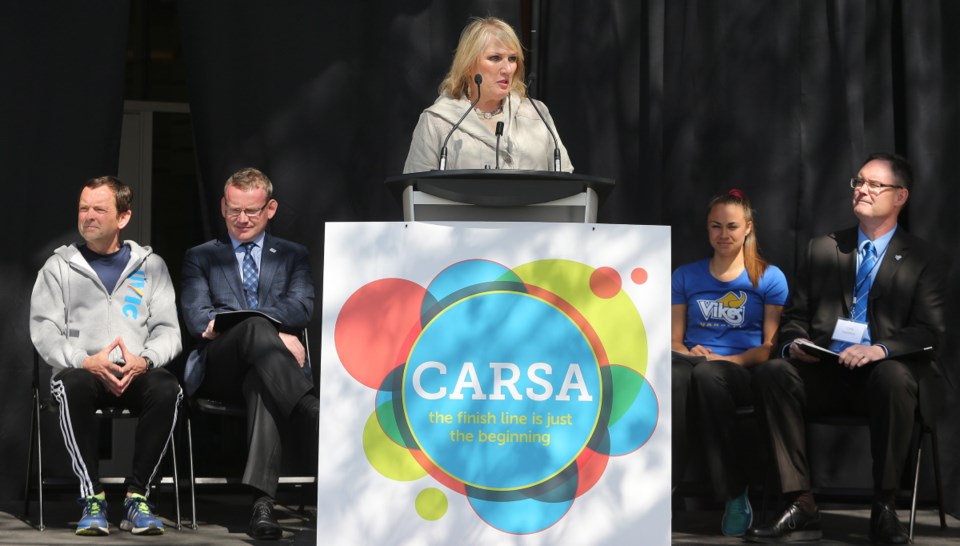A University of Victoria program that comes up with technological innovations to help people with disabilities remain independent — including a wandering-deterrence system for people with dementia — is getting $3 million more from the province to continue its work.
The money has not been earmarked for a specific CanAssist project, said executive director Robin Syme on Monday. “We’re delighted about the extra funding,” she said. The amount brings Ministry of Health funding to $10.5 million since 2011.
The wandering-deterrent system, developed with Island Health, works via screens installed throughout a residence to remind the client of the current time using a 24-hour clock and an image of the sun or moon. The screens also show messages or videos, usually recorded by family members, explaining that it’s not safe to be outside at a certain time of day or night.
The system is expected to be available for B.C. patients within a year.
Alzheimer’s Society of B.C. spokesman Jim Mann said the wandering-deterrent system is easy to install and operate and may prevent people with Alzheimer’s from leaving their homes and becoming lost.
“It is right at the door, so if a person does happen to get up in the night … the message is right there. It could be personal, saying, ‘Please don’t leave.’ ”
Another advance is a phone-in monitoring system that uses a landline with a small number of sensors to track individuals from room to room and indicate if a door to the outside has opened. Family members or caregivers can phone home, enter a code and receive an activity summary such as: “Mom is in the bathroom; her last activity was detected five minutes ago.”
CanAssist had its origins in 1999 with biology professor Nigel Livingstone, who used his spare time trying to make life easier for children with special needs, inspired by his daughter’s severe mental handicap. Past innovations included beeping bikes for blind children.
“Funding the development of technology to support independence so people can stay safely and comfortably at home puts patients’ needs first and contributes to a better quality of life.” Health Minister Terry Lake said in a statement.
But it also relieves pressure on the health system. Maximizing independence keeps seniors at home, reducing admittance to hospital emergency services and residential care settings, and reducing their requirements for in-home support, a ministry spokeswoman said.
Part of the $3-million contribution will be used to launch an online information service on technologies for those with a range of disabilities.
CanAssist works with all five provincial health authorities and an estimated 13,000 people have benefited from its focus on aids to daily living, said communications manager Anne Tolson.



